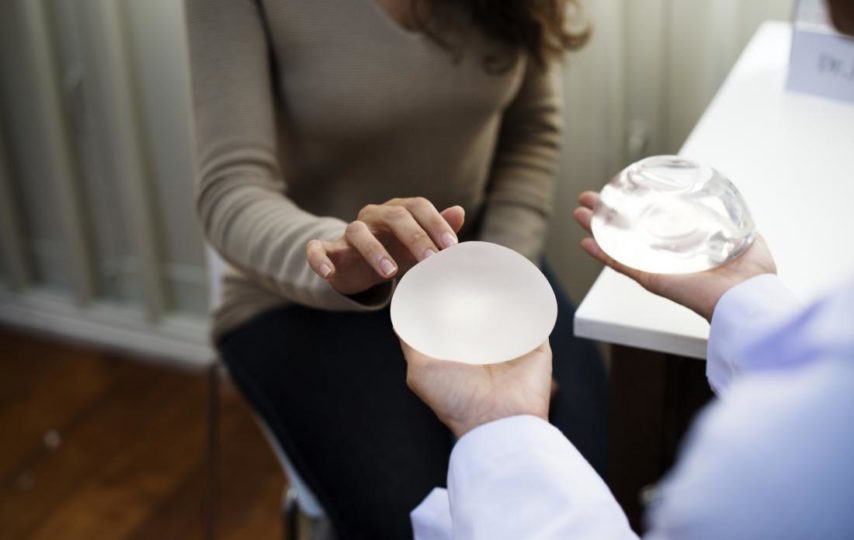There is a consistent increase in the number of people going through cosmetic surgery. Breast enhancement surgery leads the list as the most popular surgical procedure. Despite its popularity, many women are still in the dark and do not know what breast enhancement is, its effects, why other women choose it, and what can hold you back from getting breast enhancement surgery.
What is Breast Enhancement?
Breast enhancement is also known as breast augmentation. The procedure is done to enhance the shape and size of your breasts. Women choose the surgical procedure for several reasons: having asymmetrical breast volume after pregnancy, enhancing the shape of their breasts, and creating a balance with their body.
For most women, breast enhancement is a way to feel confident. To some, it is part of restructuring their breast for different medical issues. Before going through the procedure, talk to a cosmetic surgeon. Ensure you acquire the necessary information you need.
Importance of Breast Enhancement Surgery
- It gives you an aesthetic appearance if you have smaller breasts or think one breast is smaller than the other and affects your appearance when you dress
- Enhances your self-confidence and esteem
- Rectifies uneven breast after going through another breast surgery because of a medical condition
Risks Involved
Breast implant involves incision and placing foreign material in your body. This means it poses several risks to your body, including:
- Implant leakage
- Breast Pain
- Breast sensitivity
- Tissue scarring
- Infections
- Allergic reaction
- Implant folds and creases
What to Know
When preparing for breast enhancement surgery, set an initial consultation with a cosmetic surgeon to discuss your preferred breast size, appearance, and feel. Your surgeon will explain the available types of breast implant-smooth, textured, teardrop implants, and surgical technique options. Before going through the procedure, here is what to consider:
- Breast enhancement is not a long-lasting surgery – The approximate implant lifespan is ten years. Your breast will also age with time, and some factors like weight loss and gain might change your breast appearance. This may lead to more surgical procedures.
- Breast enhancement does not prevent breast sagging – Apart from breast enhancement, your surgeon may recommend a breast lift to enhance your sagging breasts.
- Cosmetic surgeries, including breast enhancement, are not covered by your health insurance – Unless you perform the surgery because of medical-related issues like breast cancer, insurance will not cover you. Prepare to incur the cost of the procedure and future follow-ups.
What Can Hinder One from Getting Breast Enhancement Surgery
Each year, many women are spending millions of dollars on plastic surgery. Many go through breast enhancement procedures to change their appearance and increase their self-confidence. However, this surgery comes with risks. Here is what can stop someone from getting breast augmentation surgery.
1. Breast implant Illness
Breast implant illness, also known as a systemic symptom, is associated with breast implants. Some of the signs related to this illness are fatigue, lack of concentration, joint pains, and memory loss. The exact cause of breast implant illness is unknown. Talk to your healthcare provider if you notice suspicious changes in your breast and if you experience any of these signs after the surgery. Attending regular checkups and screening tests will help detect and address possible issues related to breast enhancement.
2. Anaplastic Large Cell Lymphoma (ALCL)
According to FDA, there is an association of ALCL development with breast implants. The ailment is known as breast implant-related anaplastic large cell lymphoma. FDA notes that women with textured surface breast implants have higher chances of suffering from the condition.
Even so, it does not mean breast implant causes anaplastic large cell lymphoma. There is more research needed to understand the relationship between breast implants and the condition.
3. Implant Rupture
Your breast implant can rupture at any point after breast enhancement surgery. But the longer the implant stays in your body, the higher the chances of rupture. When most silicone-filled breast implants rupture, you or your doctor will likely not notice it as it happens with no symptoms.
It also doesn’t change your breast appearance, and the doctor may not detect the rupture with a physical examination. The most effective technique to determine the condition of your breast implant is Magnetic resonance Imaging.
4. Breastfeeding
Most breastfeeding women that have undergone breast augmentation surgery can breastfeed well while others cannot. Women who go through several breast surgeries before breast enhancement cannot successfully breastfeed as they have lost some of the breast glands and tissues that produce milk.
5. Hematoma
Hematoma is the formation of large pocket blood that looks like a bruise. The condition occurs to few individuals that have had breast augmentation. Hematoma occurs in almost every surgical procedure. Treatment includes draining the blood from the affected area if proliferating or the amount of blood collected in the area is large.
6. Blood Loss
Like any other surgery, one is expected to lose some blood. However, excessive bleeding that leads to blood reduction may have fatal outcomes. Blood loss can either happen during the procedure or internally after the procedure. Some of the symptoms experienced during blood loss are fatigue and body weakness. In case you experience any, consult your surgeon on the appropriate measures to take.
7. Age
Age is another limitation when one wants to undergo breast enhancement surgery. In most states, the age limit for breast implants is eighteen years. Below that, you are considered a child who cannot make sound decisions unless the surgery is for medical purposes.
8. Nerve Damage
During breast enhancement surgery, there is the potential of your surgeon damaging several nerves in your breast. If you experience tingling and numbness after the procedure, it can either be a result of nerve damage. In most cases, nerve damage can be temporary, but it turns out permanent in other cases.
Most women experience temporary breast sensitivity after breast augmentation surgery, and a minor percentage experience permanent nipple sensitivity.
Takeaway
In most cases, some things that can hold one from getting breast enlargement procedures are rare. Some of these complications occur to one percent of women that undergo the procedure. If you do not have adequate information on what situations and conditions can hinder you from undergoing the procedure, consult a professional surgeon.













